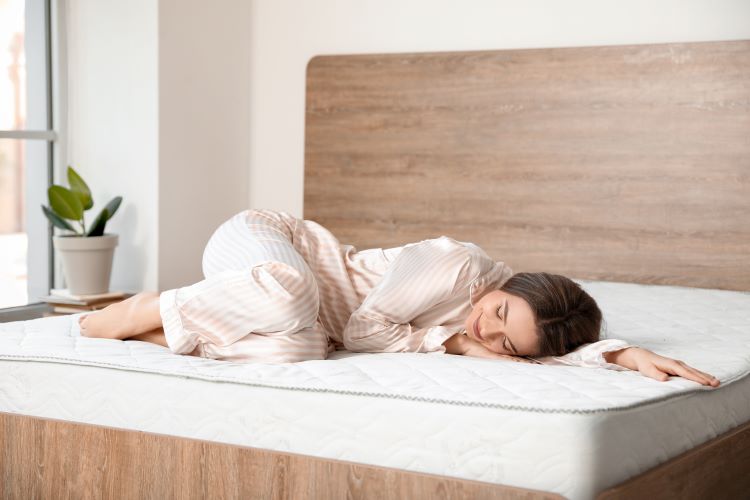Understanding Orthopedic Mattresses: A Complete Guide to Better Sleep
Orthopedic mattresses are designed to support proper spinal alignment and reduce pressure points. Deals often highlight options with memory foam, spring systems, or hybrid designs, offering choices that promote comfort for individuals with back or joint concerns.

What Makes a Mattress Orthopedic?
An orthopedic mattress is specifically engineered to support the musculoskeletal system, particularly the spine, joints, and pressure points. Unlike conventional mattresses, orthopedic options typically feature firmer support layers that promote proper spinal alignment during sleep. These mattresses were initially developed in the 1950s based on orthopedic research about how proper support during sleep can alleviate and prevent back pain. Most orthopedic mattresses use materials like high-density foam, memory foam, latex, or specialized innerspring systems that provide consistent support throughout the sleeping surface.
Health Benefits of Orthopedic Mattresses
Orthopedic mattresses offer several health advantages that make them worth considering. First, they provide targeted support to maintain proper spinal alignment, which can reduce existing back pain and prevent future issues. The pressure-relieving properties distribute body weight evenly, reducing stress on joints and pressure points. This is especially beneficial for those with conditions like arthritis, fibromyalgia, or recovering from surgeries. Additionally, orthopedic mattresses often reduce motion transfer, meaning partners are less likely to disturb each other when moving during sleep. Many users also report improved sleep quality and reduced morning stiffness after switching to an orthopedic mattress.
Key Features to Look for in an Orthopedic Mattress
When shopping for an orthopedic mattress, several key features deserve attention. First, consider firmness level—while orthopedic mattresses tend to be firmer, the ideal firmness depends on your body weight, sleeping position, and personal comfort preferences. Material composition is equally important; options include memory foam (which contours to the body), latex (offering natural bounce and support), hybrid designs (combining innersprings with foam layers), and specialized high-density foam. Look for zoned support systems that provide different levels of firmness for various body parts. Edge support is another crucial feature, ensuring the mattress maintains its integrity even at the perimeter. Finally, temperature regulation capabilities are important, as some orthopedic materials like traditional memory foam can retain heat.
How to Choose the Right Orthopedic Mattress
Selecting the best orthopedic mattress requires considering several factors. Start by identifying your primary sleep position—side sleepers often need slightly softer surfaces to accommodate shoulder and hip pressure points, while back and stomach sleepers typically benefit from firmer support. Your body weight also plays a role; heavier individuals generally require firmer support, while lighter people may find ultra-firm mattresses uncomfortable. Consider any specific health conditions you have, such as lower back pain, arthritis, or other musculoskeletal issues, and how a mattress might help address these concerns. Many manufacturers offer sleep trials, allowing you to test the mattress for a specified period; take advantage of these opportunities when available. Finally, consult with healthcare providers if you have specific orthopedic concerns that need addressing.
The Price Range of Quality Orthopedic Mattresses
Orthopedic mattresses represent a significant investment in your health and comfort, with prices varying based on materials, brand reputation, and features. Understanding the price landscape can help you make an informed decision and find value without compromising quality.
| Material Type | Price Range (Queen Size) | Average Lifespan | Key Features |
|---|---|---|---|
| Memory Foam Orthopedic | $800-$2,500 | 7-10 years | Contours to body, pressure relief, motion isolation |
| Latex Orthopedic | $1,200-$3,000 | 10-15 years | Natural materials, breathable, durable, responsive |
| Hybrid Orthopedic | $1,000-$2,800 | 7-10 years | Combines coils and foam, balanced support and comfort |
| Gel-Infused Orthopedic | $900-$2,700 | 7-10 years | Memory foam with cooling properties, temperature regulation |
| Advanced Airflow Orthopedic | $1,500-$4,000 | 8-12 years | Enhanced cooling technology, premium materials |
Prices, rates, or cost estimates mentioned in this article are based on the latest available information but may change over time. Independent research is advised before making financial decisions.
Finding the Best Orthopedic Mattress Deals
Getting value for your money is essential when investing in an orthopedic mattress. To find the best orthopedic mattress deals, start by researching seasonal sales events—major holidays like Memorial Day, Labor Day, Black Friday, and Presidents’ Day typically offer significant discounts. Many manufacturers also offer year-round promotions including bundle deals (getting pillows or bedding free with mattress purchase), floor model discounts, and clearance sales when new models are introduced. Online retailers often provide better pricing than brick-and-mortar stores due to lower overhead costs, and many offer price-matching guarantees. Consider direct-to-consumer brands that eliminate the middleman markup, potentially saving hundreds of dollars. When comparing deals, look beyond the price tag to evaluate the warranty coverage, sleep trial period, and additional services like free delivery and old mattress removal.
Investing in a quality orthopedic mattress can significantly improve your sleep quality and overall health. By understanding what makes these mattresses unique, their health benefits, key features, and price considerations, you can make an informed decision that supports your specific needs. Remember that the right orthopedic mattress should provide a balance of support and comfort that works specifically for your body type, sleep position, and health concerns.
This article is for informational purposes only and should not be considered medical advice. Please consult a qualified healthcare professional for personalized guidance and treatment.




